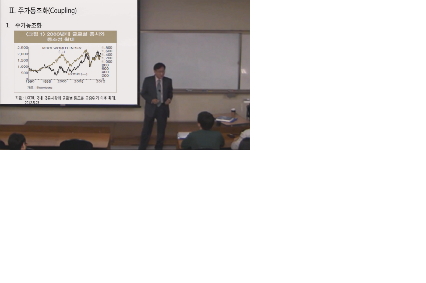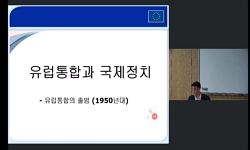The purpose of this article is that it makes the model on the strategic triangle relations between North-Korea, the Unite-States and China and uses this model to resolve North-Korea problems for Korea’s go-between role. North-Korea Problems holds an...
http://chineseinput.net/에서 pinyin(병음)방식으로 중국어를 변환할 수 있습니다.
변환된 중국어를 복사하여 사용하시면 됩니다.
- 中文 을 입력하시려면 zhongwen을 입력하시고 space를누르시면됩니다.
- 北京 을 입력하시려면 beijing을 입력하시고 space를 누르시면 됩니다.
https://www.riss.kr/link?id=A105951993
- 저자
- 발행기관
- 학술지명
- 권호사항
-
발행연도
2018
-
작성언어
Korean
-
주제어
외교정책 ; 전략적 삼각관계 ; 대북제재 ; 비핵화 ; foreign policy ; strategic triangle ; sanctions ; denuclearization
-
KDC
349
-
등재정보
KCI우수등재
-
자료형태
학술저널
- 발행기관 URL
-
수록면
109-145(37쪽)
-
KCI 피인용횟수
1
- 제공처
-
0
상세조회 -
0
다운로드
부가정보
다국어 초록 (Multilingual Abstract)
North-Korea Problems have been maintained in a long time for relations between various stake-holders. Especially, the relation between the Unite-States and China makes the opportunity that North-Korea Problems is exploited as a diplomatic way. And North-Korea uses this process as the opportunity for staying in power. So, Korea knows this situation that North-Korea problems can’t be resolved on relations between Korea and North-Korea, and has experienced the point that the problems can’t also be resolved on relations between various states.
Now, Korea suggests the go-between role for intervening in the problems and tries to improve the traditional situation among the problems. Forward, the choice of Korea on the summit between North and South has an effect on the summit between the Unite-States and North-Korea and also be the turning point as resolving the problems. Korea should make the model for analyzing the strategic triangle between North-Korea, the Unite-States, and China. And Korea Should also use the model for analyzing interests and opportunity-cost among North-Korea Problems, attuning to various processes and conditions in the strategic triangle. If so not, Korea’s go-between role would be lost the intervention opportunity about the problems by the influence from the declaration of the end of Korean War and the summit between the Unite-States and North-Korea in the not too distant future.
The purpose of this article is that it makes the model on the strategic triangle relations between North-Korea, the Unite-States and China and uses this model to resolve North-Korea problems for Korea’s go-between role. North-Korea Problems holds an importance place among Korea’s foreign policies on the Korean Peninsula. And Korea should pay attention to acquire the intervention opportunity, because North- Korea Problems include various relations between the Unite-States, China, and etc.
North-Korea Problems have been maintained in a long time for relations between various stake-holders. Especially, the relation between the Unite-States and China makes the opportunity that North-Korea Problems is exploited as a diplomatic way. And North-Korea uses this process as the opportunity for staying in power. So, Korea knows this situation that North-Korea problems can’t be resolved on relations between Korea and North-Korea, and has experienced the point that the problems can’t also be resolved on relations between various states.
Now, Korea suggests the go-between role for intervening in the problems and tries to improve the traditional situation among the problems. Forward, the choice of Korea on the summit between North and South has an effect on the summit between the Unite-States and North-Korea and also be the turning point as resolving the problems. Korea should make the model for analyzing the strategic triangle between North-Korea, the Unite-States, and China. And Korea Should also use the model for analyzing interests and opportunity-cost among North-Korea Problems, attuning to various processes and conditions in the strategic triangle. If so not, Korea’s go-between role would be lost the intervention opportunity about the problems by the influence from the declaration of the end of Korean War and the summit between the Unite-States and North-Korea in the not too distant future.
참고문헌 (Reference)
1 전진호, "일본의 대중국 안보인식 변화 - 外交靑書와 防衛白書를 중심으로 -" 한일군사문화학회 11 : 91-109, 2011
2 손기웅, "인지심리학과 협상론의 함의를 통한 영토분쟁의 해결가능성 연구" 한국국제정치학회 52 (52): 7-29, 2012
3 밸러리 허드슨, "외교정책론" 을유문화사 2009
4 변진석, "아태지역협력에 대한 아세안의 입장과 전략-다자주의와 약소국-" 30 (30): 1996
5 백창재, "신 브레튼 우즈 체제와 미중관계의 경제적 구조" 사회과학연구원 한국정치연구소 21 (21): 301-324, 2012
6 이상숙, "북-미-중 전략적 삼각관계와 제2차 북핵위기: 북한의 위기조성 전략을 중심으로" 한국국제정치학회 49 (49): 129-148, 2009
7 박창권, "미중의 지역내 패권경쟁 가능성과 우리의 전략적 선택방향" (사) 한국전략문제연구소 20 (20): 191-233, 2013
8 정경영, "미중분쟁가능성과 한국의 안보전략" 64 (64): 2010
9 정진영, "동아시아의 복수, 경제체제 간 마찰, 그리고 세계경제의 불균형: 누가 조정의 부담을 안을 것인가?" 한국정치학회 44 (44): 149-173, 2010
10 동아시아공동체연구회, "동아시아공동체와 한국의 미래-동북아를 넘어 동아시아로" 이매진 2004
1 전진호, "일본의 대중국 안보인식 변화 - 外交靑書와 防衛白書를 중심으로 -" 한일군사문화학회 11 : 91-109, 2011
2 손기웅, "인지심리학과 협상론의 함의를 통한 영토분쟁의 해결가능성 연구" 한국국제정치학회 52 (52): 7-29, 2012
3 밸러리 허드슨, "외교정책론" 을유문화사 2009
4 변진석, "아태지역협력에 대한 아세안의 입장과 전략-다자주의와 약소국-" 30 (30): 1996
5 백창재, "신 브레튼 우즈 체제와 미중관계의 경제적 구조" 사회과학연구원 한국정치연구소 21 (21): 301-324, 2012
6 이상숙, "북-미-중 전략적 삼각관계와 제2차 북핵위기: 북한의 위기조성 전략을 중심으로" 한국국제정치학회 49 (49): 129-148, 2009
7 박창권, "미중의 지역내 패권경쟁 가능성과 우리의 전략적 선택방향" (사) 한국전략문제연구소 20 (20): 191-233, 2013
8 정경영, "미중분쟁가능성과 한국의 안보전략" 64 (64): 2010
9 정진영, "동아시아의 복수, 경제체제 간 마찰, 그리고 세계경제의 불균형: 누가 조정의 부담을 안을 것인가?" 한국정치학회 44 (44): 149-173, 2010
10 동아시아공동체연구회, "동아시아공동체와 한국의 미래-동북아를 넘어 동아시아로" 이매진 2004
11 연세대학교 통일연구원, "동북아시아 지역공동체의 모색-현실과 대안-" 연세대학교 통일연구원 2007
12 한국전략문제연구소, "동북아 전략균형" 한국전략문제연구소 2010
13 신욱희, "다자주의의 동아시아 적용의 문제" 25 (25): 1997
14 이수형, "국제정치의 지형 변화와 동아시아 강대국 정치" 사회과학연구원 부설 동북아연구소 27 (27): 39-68, 2012
15 Hoffmann, Stanley, "World Disorder : Troubled Peace in the Post-Cold War Era" Rowman and Littlefield 1998
16 Waltz, Kenneth N, "Theory of International Politics" Addison-Wesley 1979
17 Dittmer, Lowell, "The Strategic Triangle: An Elementary Game-Theoretical Analysis" 33 (33): 1981
18 Snyder, Glenn, "The Security Dilemma in Alliance Politics" 36 (36): 1984
19 Walt, Stephen M, "The Origins of Alliances" Cornell University Press 1987
20 Pants, Harsh V., "The Moscow-Beijing-Delhi ‘Strategic Triangle’: An Idea Whose Time May Never Come" 35 (35): 2004
21 Bernstein, Richard, "The Coming Conflict with China" Alfred A. Knopf 1997
22 Ellsberg, Daniel, "Risk, Ambiguity, and the Savage Axioms" 75 : 1961
23 Lampton, David M., "Power Constrained: Sources of Mutual Strategic Suspicion in U.S.-China Relation" 2010
24 Hveem, Helge, "Political Economy and the Changing Global Order" Oxford University Press 2000
25 Ruggie, John G., "Multilateralism : the anatomy of an institution" 46 (46): 1992
26 Greenhalg, Leonard, "Managing Conflict" 27 (27): 1986
27 Green, Michael J., "Japan’s Changing China Policy: From Commercial Liberalism to Reluctant Realism" 38 (38): 1996
28 Iklé, Fred C, "How Nations Negotiate" Fredrick A. Praeger Publishers 1970
29 Kinnvall, Catarina, "Globalization and Religious Nationalism : Self, Identity, and the Search for ontological Security" 25 (25): 2004
30 Posen, Barry R., "Competing Visions for U.S. Grand Strategy" (Winter) : 1996
31 Cristenson, Thomas J., "Chain Gangs and Passed Bucks: Predicting Alliance Patterns in Multipolarity" 44 (44): 1990
32 김흥규, "21세기 변화 중의 미중관계와 북핵문제" 극동문제연구소 27 (27): 213-245, 2011
33 전재성, "2008년 경제위기와 미중관계의 변화, 한국의 전략" 극동문제연구소 28 (28): 123-153, 2012
동일학술지(권/호) 다른 논문
-
- 한국국제정치학회
- 남윤민(Yunmin Nam)
- 2018
- KCI우수등재
-
- 한국국제정치학회
- 김종법(Jong Bub Kim)
- 2018
- KCI우수등재
-
- 한국국제정치학회
- 박민형(Min-Hyoung Park)
- 2018
- KCI우수등재
-
- 한국국제정치학회
- 이지원(Jiwon Lee)
- 2018
- KCI우수등재
분석정보
인용정보 인용지수 설명보기
학술지 이력
| 연월일 | 이력구분 | 이력상세 | 등재구분 |
|---|---|---|---|
| 2023 | 평가예정 | 계속평가 신청대상 (등재유지) | |
| 2018-01-01 | 평가 | 우수등재학술지 선정 (계속평가) | |
| 2015-01-01 | 평가 | 등재학술지 유지 (등재유지) |  |
| 2013-03-22 | 학술지명변경 | 외국어명 : The Korean Journal of International Studies -> Korean Journal of International Relations |  |
| 2011-01-01 | 평가 | 등재학술지 선정 (등재후보2차) |  |
| 2010-12-01 | 평가 | 학술지 분리 (기타) |  |
| 2010-06-22 | 학술지명변경 | 외국어명 : The Korean Journal of International Relations -> The Korean Journal of International Studies |  |
| 2009-01-01 | 평가 | 등재학술지 유지 (등재유지) |  |
| 2007-01-01 | 평가 | 등재학술지 유지 (등재유지) |  |
| 2004-01-01 | 평가 | 등재학술지 선정 (등재후보2차) |  |
| 2003-01-01 | 평가 | 등재후보 1차 PASS (등재후보1차) |  |
| 2002-01-01 | 평가 | 등재후보학술지 유지 (등재후보1차) |  |
| 1999-07-01 | 평가 | 등재후보학술지 선정 (신규평가) |  |
학술지 인용정보
| 기준연도 | WOS-KCI 통합IF(2년) | KCIF(2년) | KCIF(3년) |
|---|---|---|---|
| 2016 | 0.91 | 0.91 | 1.12 |
| KCIF(4년) | KCIF(5년) | 중심성지수(3년) | 즉시성지수 |
| 1.07 | 1.09 | 1.415 | 0.17 |





 KCI
KCI DBpia
DBpia






